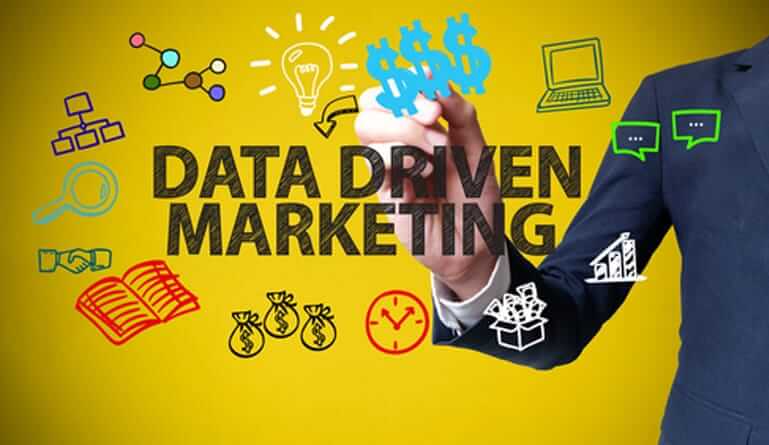Marketing has come a long way from the days of mass marketing radio and TV campaigns. Gone are the days when marketing was generic with zero personalization. The game has changed significantly.
Marketers are now relying on data in their marketing strategies. Data-driven marketing is the new norm. To be aware of everything about data-driven marketing, you have to start by understanding what it is.
What is data-driven marketing?
Data-driven marketing involves structuring brand communications with reliance on customer data. Customer data can come from browsing activity, surveys, conversations, or social interactions.
Marketers leveraging this approach use customer data to predict future behaviors and the needs of their target audience. With such clear insight, it is possible to develop personalized marketing strategies that promise significant returns on investment (ROI).
A brand can either gather customer data by itself or enlist the help of a third party. The marketers can then use the data to optimize marketing campaigns and personalization or targeting.
Is data-driven marketing any different from the traditional approach?
Generally, marketing is all about identifying the needs of a target audience and using that insight to deliver an offering that appeals to customers. That is the whole premise of marketing. Businesses have to understand their target audience truly to achieve that.
They have to learn how to anticipate customer needs and identify strategies to deliver offerings that solve their needs. The traditional marketing approach relies on speculation.
However, trial-and-error is not a sustainable approach to base marketing campaigns on since it is unreliable. Data-driven marketing eliminates the assumptions. Marketers can employ strategies based on factual data.
Why data-driven marketing?
The benefits from data-driven marketing are unexhaustive. The approach may cost a pretty penny in data collection and analysis, but the return on investments and resulting benefits are always worth the effort. Here are some of the perks of data-driven marketing:
- It gives accurate data with a basis of factual data rather than judgment and speculation. You have more confidence in decision-making when you rely on data rather than assumptions and trial and error.
- Targeting is more accurate. A data-driven approach makes it easier to understand the customers better throughout the collection and evaluation process. It allows for aspects like location based marketing that targets customers with specificity. That makes it easier to have better targeting in your marketing communications.
- It gives a significant return on investment, improving revenue. You can never go wrong when you make fundamental business decisions based on data. You will know the expected conversions and ROI before starting any marketing campaign.
- When data drives your marketing decisions, it works great. You can predict ROI and expected conversions before initiating a marketing campaign because you rely on accurate data.
How to implement data-driven marketing
A strategy is only as good as its implementation. More emphasis needs to be on the execution of data than strategy development. Here are the steps to follow when implementing a data-driven marketing approach in your business.
- Develop the data-driven marketing strategy with the help of the marketing team.
- Find relevant data sources.
- Gather, evaluate and report data from the sources you identify. Be sure to have the data in a usable form, like a chart or report.
- Identify ways to integrate the data collection tools with the marketing ones.
- Start a marketing campaign that aims to meet marketing objectives.
- Connect the campaign data with CRO tools and make trials based on data and results.
Bottom line
With a data-driven marketing approach, you have everything to gain. You can personalize your advertisements and enjoy a considerable return on investment (ROI) in your marketing campaigns.
